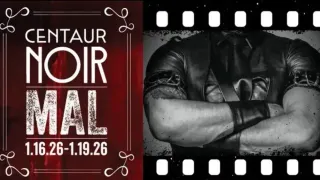August 6, 2020
Review: 'Star Trek: Lower Decks' Successfully Goes Where the Sci-Fi Franchise Has Barely Gone Before
Kilian Melloy READ TIME: 4 MIN.
When "Star Trek" returned in 1973 after the cancellation of the original series, it wasn't in the form of a movie – as Gene Roddenberry had wanted ever since the show's original run – or as the much-ballyhooed, never-produced series "Star Trek - Phase II," which had been envisioned as the cornerstone of a new television network. Instead, the show returned as an animated Saturday morning kids' series.
But not a run-of-the-mill kids' series. The animated "Star Trek" drew on the talents of sci-fi heavyweights, as the original series had done, with the likes of Theodore Sturgeon and Larry Niven contributing scripts to its 22 episodes alongside original series writers like D.C. Fontana, David Gerrold, and Margaret Armen. Over its two-season run, the animated series proved a mixed bag, offering some forgettable and silly installments but also producing episodes that would later be adopted into official "Star Trek" lore (becoming "canon" for the franchise). The series took the original show's dramatic sensibilities seriously, and made use of animation to present aliens and situations that could not have been shown on TV at the time.
Now, after 13 feature films and six live-action series, the franchise dips back into animation with "Star Trek: Lower Decks." Today's animation landscape is rife with rapid-clip, satirical shows that blend attitude, left-field humor, and some degree of serious storytelling, and it's obvious that the powers that be behind what's now called the "Star Trek Universe" – Alex Kurtzman, specifically – wanted to try blending "Simpsons"-style characterizations and absurd, warp-speed plotting, a la "Futurama," with familiar "Star Trek" conceits. To that end, "Rick & Morty" head writer Mike McMahan was hired to create and write for the show.
How well does it work? Thanks to the level of attention to detail that "Trek" fans demand, plus a willingness to loosen the franchise's sometimes staid approach, "Lower Decks" turns out to be enjoyably lightweight and solidly entertaining, with a mix of sitcom story structure and high-concept sci-fi action adventure.
The series centers around a pair of ensigns who are polar opposites. Ensign Mariner (Tawny Newsome) and Enign Boimler (Jack Quaid). The former is an exceptionally competent woman who chafes under rules and regulations and has achieved higher rank, only to be demoted for her conduct; the latter is an earnestly by-the-book man who dreams to ascending through the ranks, but whose own rigid nature often works against him.
Mariner and Boimler run with a crowd of similarly one-note fellow ensigns, including engineering newbie Ensign Rutherford (Eugene Cordero), who has recently become a cyborg and is still working out how to use his Vulcan-made implants, and new transfer Ensign Tendi (No�l Wells), whose insecurities and burning desire to be liked would become aggravating in a series less attuned to the challenge of making entertainment out of absurdity.
Where every previous iteration of "Star Trek" has focused on the command-level staff of various ships and stations, "Lower Decks" – as befits the title, itself borrowed from an episode of "The Next Generation" – spends most of its time among this low-ranking cohort who do the ship's boring scut work, sleep in podlike bunks located in the corridors that run through the ship's nether regions, and manage to save their ship – U.S.S. Cerritos – when it gets into ridiculous scrapes, which, since Cerritos is tasked with "second contact" missions, happens all the time. (Second contact is evidently what happens after the initial rush of discovering a strange new world and making friends with its new life forms, but before various cultural, legal, and practical kinks and incompatibilities are ironed out.)
That's not to say we never glimpse the bridge crew. The senior staff are present and accounted for, including Captain Freeman (Dawnn Lewis), who has a special interest in Ensign Mariner and her disciplinary problems; Commander Ransom (Jerry O'Connell), the strapping and heroic first officer; Lieutenant Shaxs (Fred Tatasciore), the hulking Bajoran Security Chief who likes to think of his security officers as his "bear pack"; and Dr. T'Ana (Gillian Vigman), the chips' Caitian Chief Medical Officer. (The original animated series had a fluffier, friendlier Caitian of its own, the Nichelle Nichols-voice M'ress.)
The show's direction and acting adopt cartoonish mannerisms – the line deliveries are as brightly colored as the crew's "Next Generation"-inspired uniforms – but, as was the case with the 1973 series, the advantages of animation are thoroughly enjoyed here. Of the four episodes provided for review, two feature ship-wide hand-to-hand battle situations (thanks to a plague and an alien attack, respectively), while a third involves an alien pathogen that transforms the ship's structure into a deadly and shifting environment. We only get these visually ambitious turns because it's much easier to draw sequences in which, say, the camera flies by the outside of the ship, looking through portholes at generalized chaos on a sprawling deck-by-deck basis, than it would be to produce similar scenarios in live action.
The show also takes full advantage of how animation can get away with making the crew look cartoonish while at the same time rendering ships and equipment with obsessively accurate detail. The show is set in the year 2380, a decade after the TV run of "The Next Generation," but everything from hand phasers to shuttlecraft faithfully reflect the designs used on that show. This visual familiarity, more than even the sometimes-mockingly offered fan service moments (a flask of "Romulan whiskey" glimpsed early on, a towering, rowdy, a spirited name-check of various characters from previous "Trek" shows, and, if you look closely, even a funny, pinpoint-accurate callback to a shapeshifting alien only ever seen on the previous animated series) helps orient even the most hardcore "Trek" fan into the show's freewheeling, and somewhat independent, sense of fun and adventure.
"Star Trek: Lower Decks" has found a fresh corner of an almost-too familiar galaxy, and it's clearly ready and enthusiastic for the adventures to come.
"Star Trek: Lower Decks" is streaming now with new episodes each week on CBS All Access.






